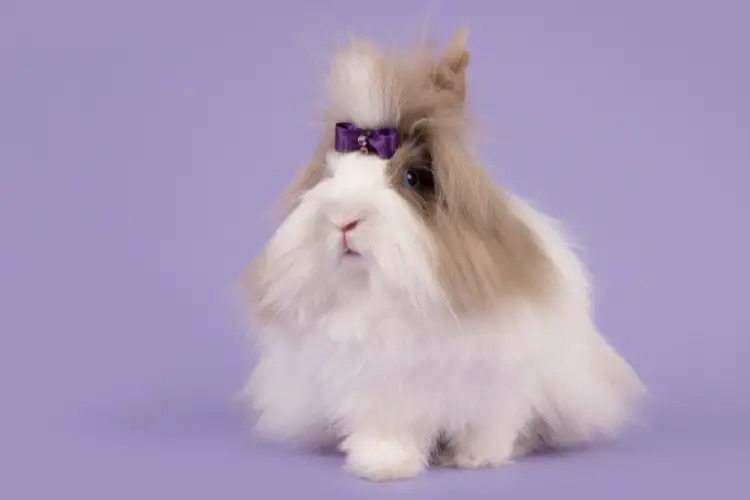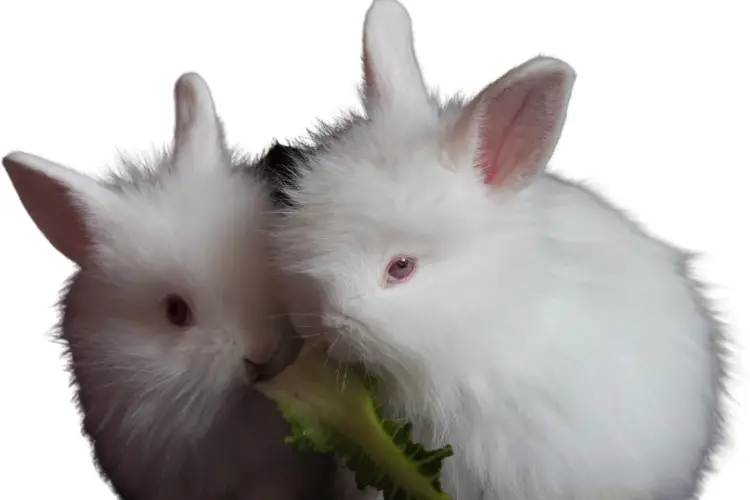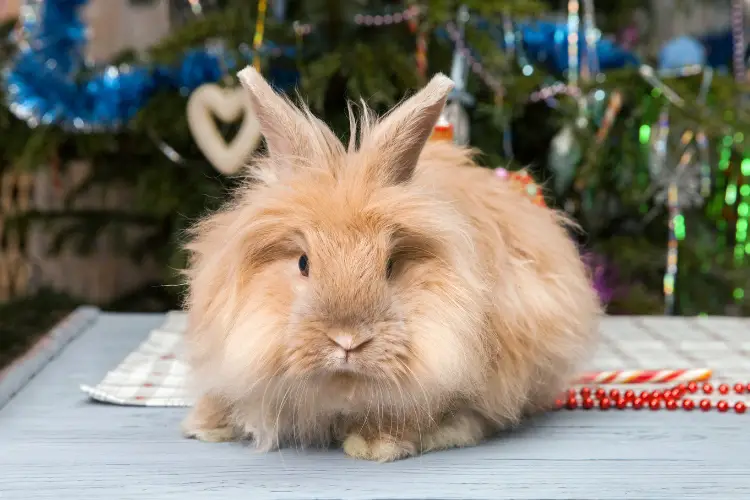Angora rabbits are known for their incredibly soft and luxurious wool coats. With their fluffy appearances and cute faces, it’s no wonder many people are drawn to keeping these rabbits as pets.
However, before bringing an Angora rabbit into your home, it’s crucial to understand their unique needs and grooming requirements.
In this blog post guide, we’ll explore whether Angora rabbits make suitable pets and provide you with all the essential information to help you make an informed decision.
Understanding Angora Rabbits
Angora rabbits are a distinct breed of domestic rabbits that originated in Ankara, Turkey. They are prized for their long, silky fur, which can grow up to an impressive length of 5 inches or more. There are several varieties of Angora rabbits, including the English, French, Giant, Satin, and German breeds, each with its own unique characteristics.
While their fluffy coats are undeniably appealing, Angora rabbits require significantly more grooming and maintenance than other rabbit breeds.
Their wool continually grows and must be regularly trimmed or plucked to prevent matting, which can lead to health issues and discomfort for the rabbit.

Grooming Requirements
One of the primary considerations when owning an Angora rabbit is the substantial grooming commitment required. These rabbits need daily brushing and combing to prevent their fur from becoming tangled and matted. Matted fur can cause skin irritation, restrict movement, and even cut off blood circulation if left unchecked.
In addition to daily brushing, Angora rabbits require regular trimming or plucking of their wool every 8 to 12 weeks. This process can be time-consuming and may require the assistance of a professional groomer, especially for first-time owners. Failure to properly groom an Angora rabbit can lead to serious health problems and discomfort for the animal.
According to a survey conducted by the House Rabbit Society, 72% of Angora rabbit owners reported spending more than an hour per day grooming their pets, with some owners spending up to 3 hours or more daily on grooming tasks.
Housing and Exercise Needs
Like all rabbits, Angora rabbits require a spacious and secure enclosure to thrive. They need enough room to move around freely, stand on their hind legs, and engage in natural behaviors like digging and burrowing.
The Rabbit House Rabbit Society recommends a minimum enclosure size of 8 square feet for a single Angora rabbit, with larger enclosures being preferable. The enclosure should be equipped with a solid bottom, as wire floors can cause painful sores on the rabbits’ feet and hocks.
In addition to a spacious enclosure, Angora rabbits require daily exercise and playtime outside of their enclosure. This allows them to stretch their legs, explore their surroundings, and engage in natural foraging behaviors.

Health Considerations
Angora rabbits are generally healthy animals, but they can be prone to certain health issues due to their unique coat and grooming requirements. One of the most common health concerns is wool block, which occurs when the rabbit ingests too much of its own fur during grooming or shedding.
Wool block can lead to a potentially life-threatening condition called gastrointestinal stasis, where the rabbit’s digestive system becomes blocked. This can result in severe pain, loss of appetite, and even death if left untreated.
To prevent wool block, Angora rabbit owners must take extra precautions during shedding seasons and ensure their rabbits receive enough dietary fiber to help move the ingested fur through their digestive systems.
According to a study published in the Journal of Exotic Pet Medicine, approximately 25% of Angora rabbit medical cases involved wool block or related gastrointestinal issues.
Behavioral Considerations
Angora rabbits can make wonderful companions when properly socialized and cared for. However, like all rabbits, they require patience, understanding, and a commitment to meeting their unique behavioral needs.
Rabbits are naturally social animals and can form strong bonds with their owners. However, they can also exhibit territorial behaviors, such as nipping or lunging, if they feel threatened or stressed. Proper socialization and handling from a young age can help prevent these behaviors and ensure a well-adjusted pet.
Angora rabbits, in particular, may be more prone to stress and anxiety due to their high grooming needs and potential for discomfort if their coats become matted. Providing them with a quiet, stress-free environment and minimizing stressful situations, such as loud noises or excessive handling, can help keep them calm and content.
According to a survey by the American Rabbit Breeders Association, 38% of Angora rabbit owners reported their pets exhibiting stress-related behaviors, such as excessive grooming or hiding, when their grooming needs were not met.
Are Angora Rabbits Good Pets?
So, are Angora rabbits good pets? The answer is not a simple yes or no. Angora rabbits can make excellent companions for the right owners – those who are prepared to dedicate significant time and effort to their grooming and care.
If you’re willing to commit to daily brushing, regular trimming or plucking, and providing a spacious and enriching environment, an Angora rabbit can be a rewarding and affectionate pet. However, if you’re unable to meet their high grooming demands or provide the necessary time and attention, an Angora rabbit may not be the best choice.
It’s essential to thoroughly research and understand the unique needs of Angora rabbits before making the decision to bring one into your home. Consider consulting with experienced Angora rabbit owners, breeders, or veterinarians to gain a better understanding of what owning one of these fluffy companions entails.
Remember, owning any pet is a significant responsibility, and Angora rabbits require even more dedication and commitment than other rabbit breeds. By being fully informed and prepared, you can ensure a happy and healthy life for both you and your potential Angora rabbit companion.

